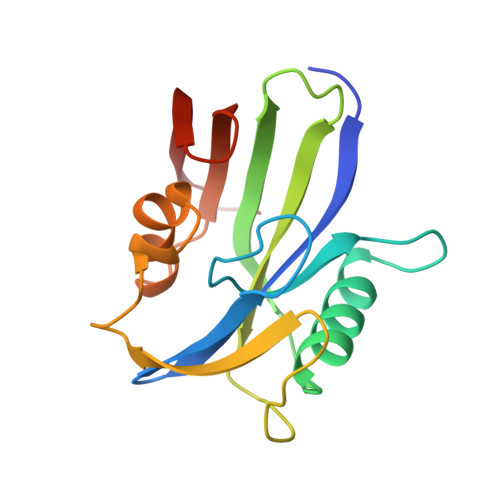Creation of a Novel Class of Potent and Selective MutT Homologue 1 (MTH1) Inhibitors Using Fragment-Based Screening and Structure-Based Drug Design.
Rahm, F., Viklund, J., Tresaugues, L., Ellermann, M., Giese, A., Ericsson, U., Forsblom, R., Ginman, T., Gunther, J., Hallberg, K., Lindstrom, J., Persson, L.B., Silvander, C., Talagas, A., Diaz-Saez, L., Fedorov, O., Huber, K.V.M., Panagakou, I., Siejka, P., Gorjanacz, M., Bauser, M., Andersson, M.(2018) J Med Chem 61: 2533-2551
- PubMed: 29485874
- DOI: https://doi.org/10.1021/acs.jmedchem.7b01884
- Primary Citation of Related Structures:
6F1X, 6F20, 6F22, 6F23 - PubMed Abstract:
Recent literature has both suggested and questioned MTH1 as a novel cancer target. BAY-707 was just published as a target validation small molecule probe for assessing the effects of pharmacological inhibition of MTH1 on tumor cell survival, both in vitro and in vivo. (1) In this report, we describe the medicinal chemistry program creating BAY-707, where fragment-based methods were used to develop a series of highly potent and selective MTH1 inhibitors. Using structure-based drug design and rational medicinal chemistry approaches, the potency was increased over 10,000 times from the fragment starting point while maintaining high ligand efficiency and drug-like properties.
Organizational Affiliation:
Sprint Bioscience AB, Novum , 14157 Huddinge , Sweden.


















